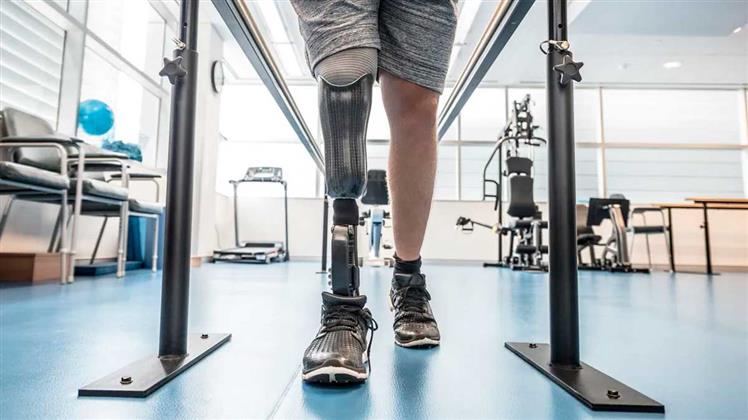These microprocessor-controlled knees (MPKs) provide extended capabilities for the amputee than those offered by the passive limbs that do not use the microprocessors, ISRO said in a statement. “Thus far, a 1.6 kg MPK has enabled an amputee to walk about 100 meters in the corridor with minimum support. Efforts to improvise the performance are underway,” it said.
The smart MPKs are being developed by ISRO’s Vikram Sarabhai Space Center (VSSC), under a Memorandum of Understanding (MoU) with the National Institute for Locomotor Disabilities (NILD), Pt. Deendayal Upadhyaya National Institute for People with Physical Disabilities (PDUNIPPD), and Artificial Limb Manufacturing Corporation (ALIMCO).
A MPK consists of a microprocessor, hydraulic damper, load and knee angle sensors, composite knee-case, Li-ion battery, electrical harness, and interface elements.
The microprocessor detects the state of gait based on the sensor data. The control software estimates the real-time damping needed to attain the desired gait by changing the stiffness of the system that I achieved by a hydraulic damper operated by a DC motor.
Walking parameters specific to amputees can be set using PC-based software to improve one´s comfort. The interface plots the parameters in real time during walking.
Initial walking trials were conducted with the support of parallel bars. Subsequently, the amputee could walk about 100 meters in the corridor with minimum support, the statement said.
“More intelligence is being incorporated into the system to help the amputee walk through uneven terrains with advanced features for more comfort,” ISRO said. pll/mv/abm









